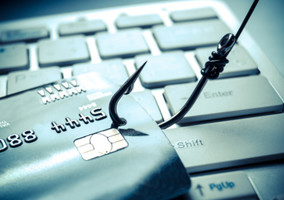Fraudsters have stolen over £3.5m from charities during the pandemic, according to the Charity Commission.
The regulator says it received 645 reports of fraud and cybercrime between March and September, including concerns about people setting up fake charities to attract donations and staff diverting charitable funds into their own bank accounts.
The Charity Commission warned that the “true scale” of fraud is likely to be far higher as incidents are under-reported.
The figures have been released at beginning of Charity Fraud Awareness Week, and the Charity Commission has published advice and resources to help trustees protect their organisations.
£3.6m lost in six months
The regulator said in a statement that charities had reported crimes worth £3.6m during the six-month period to Action Fraud, the UK’s national centre for tackling fraud.
This is broadly in line with the level of fraud identified in 2018 and 2019, when crimes worth £7.85m were reported over twelve months.
The Charity Commission argued that charities may be especially vulnerable because of shorter sign-off policies introduced for remote working, as well as the sector’s tendency “to place goodwill and trust in individuals”.
Research
Charity Commission research into how voluntary organisations respond to fraud, conducted last year, found that 73% of affected charities go on to change their procedures or strengthen their internal controls.
Two thirds of frauds are identified by financial controls or as part of the charity’s audit.
Charity Commission boss: 'Be extra vigilant'
Helen Stephenson, the chief executive of the Charity Commission, said: “We are seeing evidence that opportunists may be taking advantage of charities during the pandemic, and I urge all charities to be extra vigilant against fraud.
“This comes at a time when charities are a lifeline for many people suffering from Covid-19, and the wider impacts of the pandemic.
“Charities have been at the forefront of responding to the crisis, and many have also been placed under severe financial strain. As our country faces another challenging point in the crisis, we cannot afford for charitable work to be disrupted by criminals.
“When fraud hits charities, its impact is felt far beyond the balance sheet. It is people that are let down, often hard-working volunteers or people in desperate need. That’s why I’m urging all trustees to take action now, to protect their charity’s valuable funds and assets.”
Advice
The Commission has released advice to charity trustees and staff to protect against fraud, including updating and promoting counter-fraud policies, strengthening financial controls, and encouraging everyone involved with charities to challenge “unusual activity and behaviour”.
The Fraud Advisory Panel, an independent anti-fraud body, said that Charity Fraud Awareness Week was an opportunity for organisations to “take stock and ensure they’re protecting themselves”.
David Clarke, the chair of the panel, said: “Fraudsters want to exploit weaknesses exposed by the pandemic, so we recommend all charities are aware of common fraud risks, take time to check what they are being asked to do, and keep their organisations safe.
“Now is a good time for charities to revisit and review controls that may have been introduced as part of their crisis management response at the start of lockdown, to see if they need strengthening.
“Everyone involved in a charity, from the most senior to the most junior employees, should be given the skills to recognise the tell-tale signs of fraud, and know what to do if they have concerns.”
Related articles












